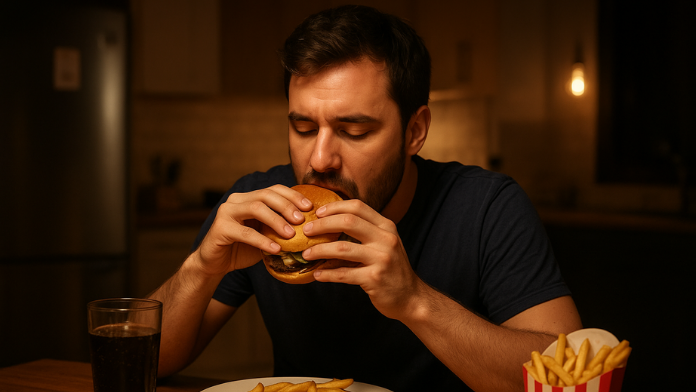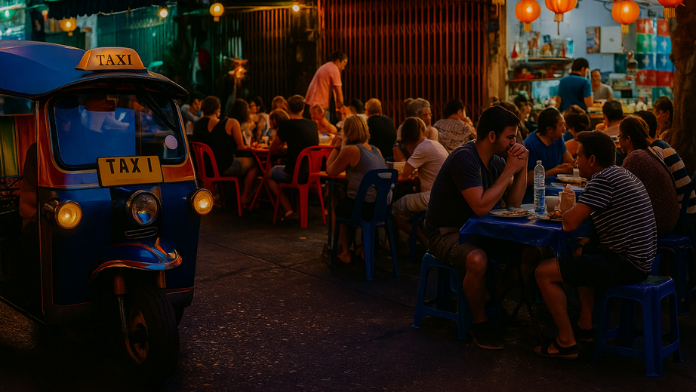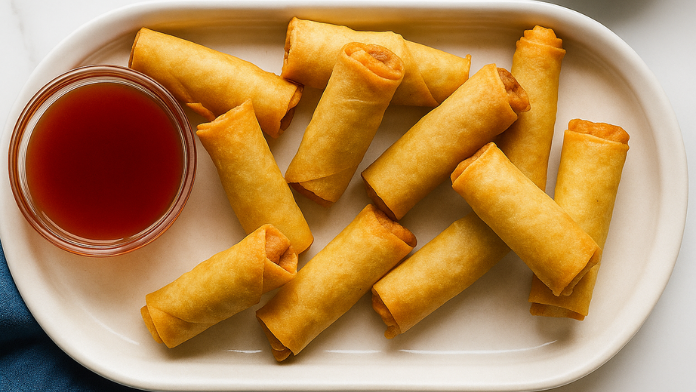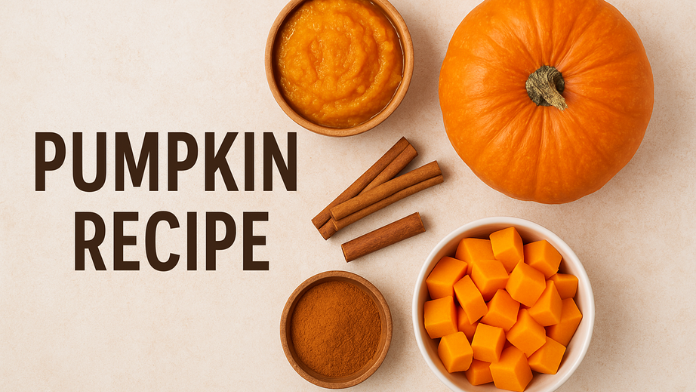
Late night food cravings are something almost everyone experiences. Whether you’re working late, binge-watching your favorite show, or simply hungry after a long day, reaching for snacks at midnight feels almost natural. You may even search terms like late night food near me or crave fast options like late night food pizza because they’re quick, comforting, and satisfying. But what actually happens inside your body when you eat late? How does nighttime eating impact your energy, sleep quality, digestion, and overall health?
This post deconstructs the hidden consequences of eating late, backed up by useful advice and actual cases. You’ll learn why it feels so good to eat after dark, how your body reacts to food differently at night, the benefits and drawbacks of eating certain foods and in certain amounts, and practical ways to control urges without compromising your health. From late-night meal delivery trends to well-known destinations like late-night food Dallas and late-night food Las Vegas, we’ll also examine the diversity of late-night food culture. By the conclusion, you’ll have better habits and choices that strike a balance between fun and well-being.
Why Late Night Food Feels So Tempting
Late-night cravings aren’t just about willpower. They come from a combination of biology, psychology, and lifestyle patterns. Understanding these triggers helps you manage them better and avoid overindulging.
Your Body’s Natural Rhythm
Your circadian rhythm regulates hormones, appetite, energy, and sleep. Hormones that control hunger change as the evening wears on. Leptin (the satiety hormone) can occasionally fall and ghrelin (the hunger hormone) can occasionally rise, particularly in those with irregular eating patterns or meal skipping. This creates an appealing feeling for late-night food.
Emotional and Mental Triggers
Evening hours tend to bring emotional fatigue, stress, and decision overload. It becomes easier to soothe yourself with food. That’s why carb-heavy meals feel appealing—they increase serotonin, temporarily boosting mood.
Environment and Convenience
Services like late night food delivery make it easy to order anything instantly. Apps spotlight options such as late night food pizza, and cities like late night food Dallas or late night food Las Vegas offer 24/7 access, making late eating a cultural norm.
What Happens Inside Your Body When You Eat Late

When you eat at night, your digestive system processes food differently than during the day. Here’s how your body reacts.
Slower Metabolism
At night, your metabolic rate naturally slows down as the body prepares for rest. This means calories consumed late are not burned as efficiently.
Altered Blood Sugar Responses
At night, insulin sensitivity is reduced. Consequently, there is a greater chance of energy crashes the next day due to the sharper surge in glucose. Frequent eating at night may eventually lead to insulin resistance.
Impact on Digestion
Eating heavy meals before bed may cause:
- Bloating
- Heartburn or acid reflux
- Discomfort that disrupts sleep
Lying down shortly after eating makes it easier for stomach acid to move upward.
Sleep Disruption
Late night food—especially high-sugar or spicy meals—interferes with deep sleep cycles. Poor sleep affects the next day’s mood and energy, creating a loop of cravings and tiredness.
How Late Night Food Affects Your Energy Levels
Food is fuel, but the timing of that fuel matters.
Morning Fatigue
If you eat high-calorie meals late, your body is still digesting during sleep. This reduces overall restfulness, causing sluggishness in the morning.
Reduced Productivity
Poor sleep quality affects mental clarity, memory, and focus. That’s why a midnight meal can impact your performance the next day at work or school.
Energy Crash Cycle
Meals high in sugar or carbohydrates cause brief energy boosts that are followed by sharp drops. You experience fatigue, irritability, and hunger again as a result of these changes.
The Hidden Long-Term Effects of Eating Late
Occasional late-night eating is normal. But when it becomes a habit, it may lead to health implications.
Weight Gain
The calorie surplus from frequent late-night eating—combined with slow nighttime metabolism—can gradually lead to weight gain. Studies link nighttime eating with increased belly fat.
Hormonal Imbalance
Regular late-night eating disrupts hormones like cortisol, leptin, and ghrelin, affecting hunger patterns and stress responses.
Increased Risk of Metabolic Issues
While it doesn’t guarantee illness, habitual late-night snacking may raise the risk of:
- Metabolic syndrome
- High blood sugar levels
- Increased triglycerides
Sleep-Related Disorders
Ongoing digestive discomfort can worsen sleep apnea or insomnia symptoms.
Popular Late Night Food Trends
Late-night eating varies depending on where you live and what’s available. Some regions are known for strong late-night food culture.
Late Night Food Dallas
Dallas is famous for barbecue, tacos, and comfort food served late into the night. Many eateries stay open until 2 a.m. or beyond, appealing to night-shift workers and students.
Late Night Food Las Vegas
Las Vegas never sleeps—neither does its food scene. Buffets, all-night diners, and international cuisine make late-night meals a lifestyle rather than an exception.
Late Night Food Pizza
Pizza remains the most popular go-to because it’s shareable, customizable, and universally comforting. It’s also the most widely available option on delivery apps after midnight.
Types of Late Night Foods and Their Effects
High-Carb Foods
Examples: pasta, white rice, chips, fries, pastries
Effects: Blood sugar spikes, inflammation, morning fatigue
High-Protein Foods
Examples: boiled eggs, grilled chicken, Greek yogurt
Effects: More stable digestion, lower impact on sleep quality
Fatty and Greasy Foods
Examples: burgers, late night food pizza, fried foods
Effects: Sluggish digestion, higher risk of acid reflux
Spicy Foods
Effects: Acid reflux, disrupted sleep cycles, increased heart rate
Sugary Foods
Examples: ice cream, cookies, desserts
Effects: Energy spikes, hormonal disruption, increased fat storage
Smart Late-Night Choices
If you must eat late, choose options such as:
- Bananas
- Almonds
- Oats
- Soup bowls
- Whole-grain crackers
- Fresh fruit
- Low-fat yogurt
These are lighter, easier to digest, and less likely to interfere with sleep.
How to Avoid Late Night Food Cravings
Maintain Regular Meal Timing
Consistent eating schedules prevent hormonal fluctuations that trigger nighttime hunger.
Stay Hydrated
Drink enough water during the day. Many people confuse thirst with hunger.
Reduce Caffeine in the Evening
Caffeine affects hunger hormones and disrupts sleep cycles.
Eat a Balanced Dinner
A mix of protein, fiber, and complex carbs keeps you full longer.
Reduce Screen Time Before Bed
Exposure to screens elevates cortisol and delays melatonin release, making you crave comfort food.
If You Must Eat Late: Smart Strategies
Choose Smaller Portions
Late-night meals should be light, ideally under 200–300 calories.
Keep It Simple
The simpler the meal, the easier it is for your body to digest. Soups, salads, smoothies, or fruit bowls are good choices.
Eat Slowly
Mindful eating helps prevent overeating.
Allow Digestion Time
Wait at least 45–60 minutes before lying down to reduce acid reflux.
How Late-Night Eating Affects Different Lifestyles
Night Shift Workers
For those working late, eating at night is unavoidable. The key is choosing balanced, nutrient-rich foods and maintaining hydration.
Students
Irregular schedules and stress lead to inconsistent eating patterns. Planning healthier snacks can reduce dependence on junk food.
Travelers
Cities like late night food Dallas or late night food Las Vegas tempt travelers with endless options, but choosing wisely makes trips more comfortable.
Athletes
Eating late may hinder muscle recovery. Light protein snacks at night are better than carb-heavy meals.
The Psychology Behind Late Night Food
Stress Eating
People often use food to cope with stress, loneliness, or boredom.
Reward-Based Eating
Many see late-night snacks as a “reward” after a long day, reinforcing the habit.
Emotional Attachments
Comfort foods are tied to positive memories, which makes them more appealing at night.
Late Night Food and Sleep Quality
The Connection
Food affects melatonin release, core body temperature, and digestion—all vital for restful sleep.
Foods That Help Sleep
- Chamomile tea
- Almonds
- Kiwi
- Warm milk
- Oatmeal
Foods That Disturb Sleep
- Heavy meat dishes
- Spicy meals
- Chocolate
- Coffee-flavored desserts
Healthy Late-Night Snacking Alternatives
Instead of reaching for heavy meals, try:
- Air-popped popcorn
- Hummus with carrots
- A small smoothie
- Cottage cheese
- Avocado on whole-grain toast
These provide satiety without overwhelming the digestive system.
Late Night Food Delivery: Convenience vs. Impact
Pros
- Convenience
- Accessibility
- Variety
Cons
- Higher calorie intake
- More greasy, processed foods
- Overeating due to portion sizes
Modern delivery apps amplify nighttime cravings by offering endless choices at your fingertips.
Practical Tips to Balance Late Night Eating
- Keep your kitchen stocked with healthier alternatives.
- Plan your dinner earlier.
- Set a “kitchen closed” routine.
- Use herbal teas to reduce cravings.
- Go for short walks after late meals to aid digestion.
Mini Summary
Late night food can be enjoyable, comforting, and culturally embedded in modern life. However, eating late affects sleep, digestion, energy, metabolism, and long-term health. With mindful choices and structured habits, you can enjoy occasional late-night meals without compromising your well-being.
Conclusion
Late night food isn’t always harmful; the impact depends on what you eat, how much you eat, and how often you eat it. Occasional indulgence is normal, especially with tempting options like late night food pizza and convenient late night food delivery services. But making late-night eating a daily habit can disrupt your energy, sleep, digestion, and overall health. By understanding your triggers, planning balanced meals, and choosing smart alternatives, you can satisfy cravings while still protecting your body and energy levels. Ultimately, the goal isn’t to eliminate late-night food entirely, but to approach it with awareness, intention, and moderation.
FAQs
- Is late night food harmful for your health?
Eating late occasionally is fine, but regular late-night meals can disrupt sleep, digestion, and blood sugar levels. - Why do I crave late night food even when I’m not hungry?
Hormonal fluctuations, emotional stress, and irregular meal timing can trigger cravings. - Does eating late at night cause weight gain?
It can contribute to weight gain if it leads to excess calorie intake and poor sleep quality. - What are healthier late-night snack options?
Fruits, nuts, yogurt, oatmeal, and light smoothies are good choices. - How does late night food affect energy the next day?
Heavy late meals reduce sleep quality, leading to morning fatigue and energy crashes. - What is the best time to stop eating at night?
Most experts recommend avoiding large meals 2–3 hours before bedtime. - Is late night food delivery a bad habit?
Not necessarily, but frequent reliance on delivery meals—often high in fats, salt, and calories—can negatively impact health over time.











999betcassino had a few interesting games. I spent a little time there. Not my fave, but hey, different strokes, right? Check out 999betcassino and see if it’s your kind of place.